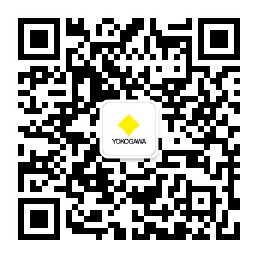By ARC Advisory Group
Keywords
Industrial Internet of Things (IIoT), Operational Technology (OT), Information Technology (IT), Industrial Internet of Things (IIoT), Cisco Systems, Structured Data, Operational Excellence (OpX), Total Cost of Ownership (TCO), Big Data, Sushi Sensor, Main Automation Contractor (MAC) service
Summary
Connecting industrial devices, systems, and applications to provide plant and enterprise personnel with actionable information is not a new concept. Leading automation and software suppliers have been working diligently to address this requirement for decades. These efforts have not always been entirely successful, due in large part to poor interoperability between operational technology (OT) and information technology (IT). This has hampered business performance.
Today, ARC Advisory Group is seeing a profound change in approach. Intelligent field devices, digital field networks, Internet Protocol (IP)-enabled connectivity and web services, historians, and advanced analytics software are providing the foundation for an Industrial Internet of Things (IIoT). The cost of connectivity is dropping dramatically, providing powerful potential to connect people, assets, and information across the industrial enterprise. Now, rather than having to build, integrate, and support purpose-built industrial solutions, automation suppliers and end users alike can reach out and embrace a wide variety of lower cost, fully supported commercial technologies within their industrial connectivity solutions.
However, since in most industrial environments, production continuity safety, and both physical and cyber-security are paramount, extreme vigilance must be employed to ensure that the omnipresent connectivity and openness implied by the IIoT does not compromise any of the above or overwhelm users and/or applications with too much raw data.
Clearly, an industrial approach is required, one that enables manufacturers and other industrial organizations to enjoy the benefits of commercial, Internet-based technologies, but without the potential pitfalls that could include overwhelming people with irrelevant data and information, compromised data security, operational disruptions, and/or safety and environmental issues. Avoiding pitfalls such as these requires appropriate integration of both operational technology (OT) and information technology (IT), with an emphasis on maintaining effective safety and security approaches and practices. ARC refers to this as the Industrial Internet of Things (IIoT).
Executives from Yokogawa, a pioneer in both process automation and digital communications for field networks, recently briefed ARC on the company’s perspective on the IIoT. Clearly, Yokogawa’s industrial automation (IA) product and service offerings, industry domain knowledge, and their approach – which emphasizes safe, secure, and uninterrupted operations – provide a solid foundation for an Industrial Internet of Things that specifically addresses the requirements of process automation, particularly for the OT side of the equation.
To be able to provide an equally solid foundation for the IT side, Yokogawa has announced a number of strategic collaborations and will be partnering with Cisco Systems, a leading global IT, networking, and security supplier and a strong enabler of IoT technologies, processes, and concepts.
Yokogawa, Cisco, and other partners/collaborators are also working closely with end users across a variety of industries to identify specific requirements and develop appropriate IoT-enabled solutions. In many respects, this represents a departure from past practices that often displayed poor alignment between OT and IT suppliers and the end user community.
Yokogawa and Cisco have already worked together to deliver service content and solutions for a major global oil company. These solutions incorporate Yokogawa’s deep domain knowledge of OT and well-proven industrial automation solutions built on top of Cisco’s Secure Ops solution. The joint solution provides a secure ICS/SCADA platform incorporating best practices for information technology, security, and processes to support more effective operational decisions.
The two companies are working together to roll out similar solutions for clients across a variety of industry sectors. By partnering with Cisco, Yokogawa can leverage its own strengths in industrial automation and other OT technology and in industrial applications; while taking advantage of Cisco’s strengths in IT infrastructure (including embedded cyber security and remote/local connect/access capability), best practice processes, IoT applications, and IoT-enabled innovation.
Industrial Internet of Things (IIoT) Enables New Business Models
(Source: ARC Advisory Group)
IoT Integrates Operational Technology with the Enterprise
(Source: Yokogawa)
相关行业
-
可再生能源
使用可再生能源可以保护环境,使社会和工业更接近实现可持续性发展的目标。然而与传统能源相比,在其快速发展的道路上存在着一些阻碍,如生产成本较高、电网供电不稳定等。作为控制系统和仪表行业的企业,横河电机一直致力于帮助各行业客户实现稳定运营、提高工厂生产效率。基于VigilantPlant实现平稳运营的理念,横河电机的解决方案可促进可再生能源的使用。
-
电力
20世纪70年代中期,横河电机通过推出EBS电气控制系统进入了电力业务领域。自此以后,横河电机坚定不移地持续开发其技术和能力,旨在为全球客户提供更优的服务和解决方案。
-
大宗石油化工
无论是生产石化产品、无机物还是中间产品,化工企业都面临着成本和利润率的压力,必须及时有效地交付产品,同时保持安全、合规地运营。此外,化工企业必须应对原料和能源价格的波动,并为市场提供适合的产品组合。
横河电机长期服务于大宗化工市场,得到大家的广泛认可。通过我们的产品、解决方案和行业专业知识,横河了解您的市场和生产需求,并将与您合作,在您的工厂生命周期中提供可靠、经济的解决方案。
-
水和废水
横河电机通过开发更节能的技术,帮助减少运营的碳排放,以及构建保护环境免受污染的坚固建筑,为可持续水生产提供控制解决方案。横河凭借先进的技术和广泛的应用专业知识与客户合作,提供可持续水生产的解决方案,促进客户的业务,并让整个工厂在生命周期中增加效用。横河的技术和产品可提高工厂的性能,确保它们在当今的水处理领域中具有竞争力,并降低运营成本。横河支持市政和工业水处理领域的各种水控制方面的应用。
-
生物质发电
现在生物质受到越来越多的关注,因为它是一种可再生能源,可以帮助火力发电厂减少二氧化碳排放。横河电机的系统在多种类型的发电厂中都有使用,包括使用生物质发电的工厂。横河电机的测量和控制技术帮助这些工厂更有效地运行并减少其碳排放。
-
地热发电
地热能不受天气条件的影响,整年都能进行稳定的电力供应。此外,由于没有燃料在地面上燃烧,并且只释放出极少量的二氧化碳,因此环保性非常高。沿着环太平洋带(也称为“太平洋火圈”),在日本、菲律宾、印度尼西亚、新西兰、墨西哥、哥斯达黎加和美国等国家以及位于其他地热活动区域的冰岛、土耳其和意大利等国家都有丰富的地热资源。截至目前,横河已在日本、东南亚等地参与了30个地热发电项目,提供了多种测量和控制技术,提高了地热发电系统的可靠性和维护效率。
